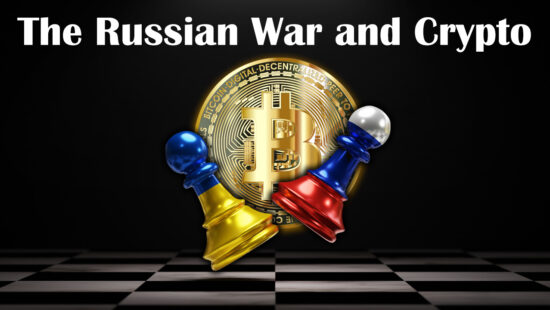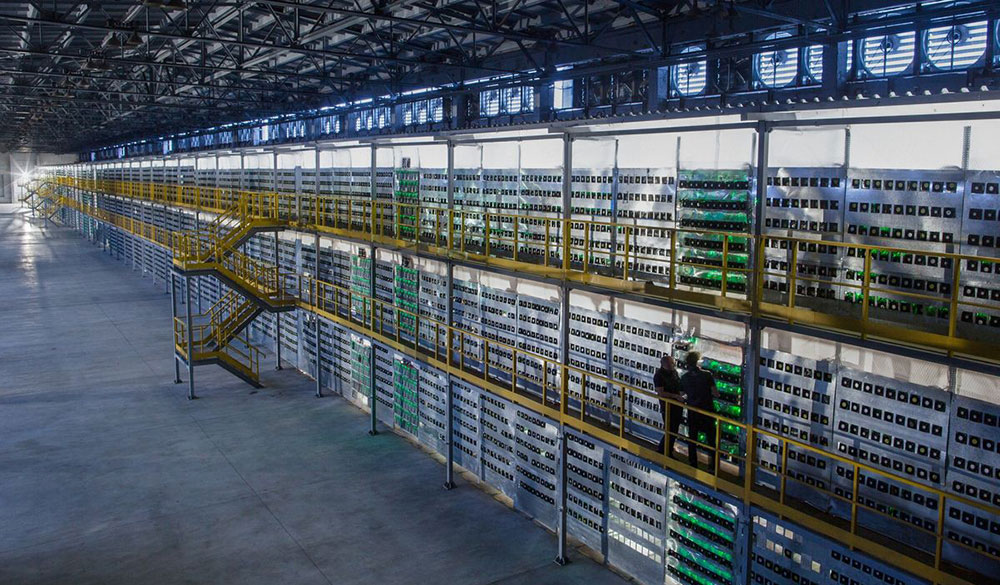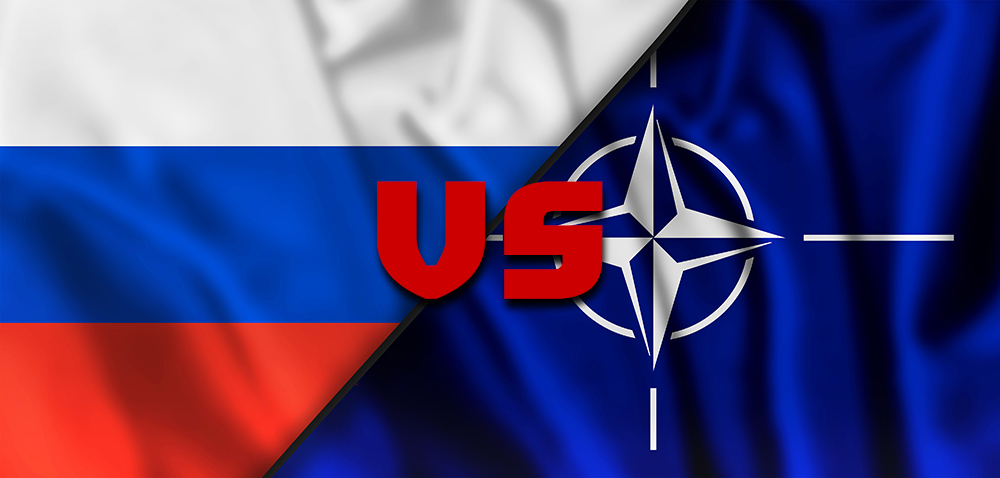What Does the Ukraine / Russia War Mean for the Future of Crypto?
- By: Sean van der Merwe on February 28, 2022
- Categories: Cryptocurrency

The very first cryptocurrency, Bitcoin, was launched in 2009 with the intention of helping the public. In the middle of a global recession, its founder introduced it as a way for people to control their own finances without having to rely on third-party banks or governments.
The founding qualities of decentralisation and independence may now very likely be the qualities that governments under financial sanctions from the world banks may use to rally funds and continue with their own agendas. Such seems a likely option in the Russian war for the current oppressors. While the world has turned off the taps on finances for Russia, no one can stop monetary transfers with cryptocurrency.
The Ukraine and Russia War
The world awoke to shocking news last week with reports that an all-out attack was underway on Ukrainian soil by Russian bombers and ground forces. President Putin tore up his peace agreement with his neighbouring country and began to invade its borders in an effort to oust the current democratically elected presidency and its government.
Putin believes strongly that the current Ukrainian regime are extremist Nazis and sees them as a real threat to Russia’s future. But the rest of the Western world is in outrage and is taking drastic steps to bring this Russia war initiative to an end by placing extreme pressure on the nation, financially.
Cut Off from the Global Economy
In a move to bring failure to Russia’s invasion of Ukraine and the capture of its capital city, Kyiv, the United States, the European Union, and the United Kingdom agreed to put in place crippling financial sanctions on the Kremlin. They hope to force a ceasefire of the Russian war by throttling the country’s financial system. It amounts to a modern siege.
The strategy aims to remove select Russian banks from the SWIFT banking system. SWIFT is a banking communication protocol that is used to move multiple billions of dollars between more than 11,000 banks worldwide. This restriction would make it difficult for President Putin and his country to send or receive international funds. It would, therefore, effectively halt both imports and exports in and out of the country.
The world bank would also freeze Russia’s account. This would effectively bar them from accessing around $600 billion in reserve funds. Measures may also be taken to prevent highly influential Russians from applying for and receiving citizenship in other nations. This could be construed as a way to gain access to free-market financial systems and funnel funds back to the country.
The sanctions by the West are said to be some of the most severe restrictions ever placed on a country in this modern age. As a result, the Russian Ruble has fallen to its lowest value against the US dollar in world history.
Meanwhile in Russia
The Russian public received a warning that card payments would carry on as normal within the country, but that they would face issues outside the borders of the nation. VTB has advised all its customers in other countries to withdraw their funds or pay using other international banks instead of Russian ones.
The Kremlin admits that Western sanctions are problematic, but that they were not catastrophic, as they set to widen the country’s trade with Asian countries to the east. China has already said that while they support all efforts for peace to resume between the two nations, the imposing of sanctions is no way to settle conflicts. As such, China will continue trade with Russia.
Many Russian specialists believe that the Russian financial messaging system can aptly replace the country’s need for SWIFT and may aid in maintaining a reasonable degree of foreign trade with countries that do not support the sanctions.
In drastic moves to bolster its economy in the short term, the Russian Central Bank has raised its interest rate from 9.5% to 20% and has told companies to get ready to offload their foreign currency. The Russian central bank and finance ministry said that they will jointly decide on ordering export companies to sell up to 80% of their forex. Brokers have also been ordered to stop short selling and to halt trading in Russian securities.
How Crypto can fill the coffers of the Russia War with Ukraine
Both Ukraine and Russia have been big supporters of cryptocurrency technology in their respective countries. The advantages of a decentralised currency are certainly evident for all to see, but the consequences of crypto during a time of war are yet to be tested. The Russia war may be the first major conflict where the blockchain has a major effect on both forces.
Already, relief funds have streamed in by way of cryptocurrency donations. An un-named Kyiv IT professional managed to raise $400,000 in funds for the Ukrainian plight in the Russia war oppression. While this is not a massive amount in the grander scheme of things, it’s only the beginning.
There is a possible concern that Russia may use blockchain options to transfer funds to where they need them. As a decentralised finance space, no one can restrict transactions in or out of the country in this way. Also, most crypto purchases are anonymous, which means it may be difficult to tell who is buying what.
Russia is already renowned as the hub for crypto crimes. It has been able to move hundreds of millions of dollars worth of the currency in the past. The illicit crypto market has shown how easy it is to breach exchanges and excavate huge sums of money. So, some experts are expecting Russia’s cyberattacks to increase globally in the wake of the Russian war.
Fortunately, the US authorities have demonstrated a keen ability to retrieve illicit funds, which may not work in Russia’s favour. Crypto exchanges like Coinbase are also working to prevent certain IPs from trading on their networks. If other exchanges follow suit, it may be the only way that the world can throttle the crypto space for Russia. If not, the country could use digital currency to monetise its commodities like oil and gas.
Workability of Crypto in the Russia War Saga
The greatest problem with cryptocurrency is its practical usability. While you could theoretically move as much of the virtual asset as you want, is it usable where you need it to be? In other words, would Russia’s trade partners accept the currency?
If crypto were to become so vital, there would need to be massive domestic reforms. This would be necessary so that the average man in the street could use it to buy groceries, pay rent, and more.
How can the Russian War change crypto?
One thing is for sure. After Russia launched its special military operation against Ukraine, the crypto market took a massive hit. It fell over 9% in a single day, and sliding as low as $1.53 trillion in value. Ethereum, which is traditionally one of the fastest-growing coins lost 13.28% of its value. But these are the immediate effects. Where could crypto possibly go in the future?
Albeit speculation, if the Russian titan decides to rest heavily on the decentralised markets, it could become the first working model for the usability of decentralised funds to sustain a first-world country. Instead of relegation to the dark web, crypto could do for an entire country what it does for syndicates and individuals. It has the power to make them independent of the world economy.

Russia’s largest Bitcoin mining facility. Image courtesy of Bloomberg
But is it likely? This is an answer that nobody can truly answer. The Russian war is the first time such a high-profile country has come under such sanctions. While the options are limitless, the application is not without its challenges. But if we were to guess… this massive world superpower was not blind going into this conflict. They probably have a plan in place already to use digital means to dig themselves out of the slump. They certainly have the cryptocurrency-related tools at their disposal to operate. Russia will just need to find a way of avoiding the US Dollar.
What Should the World be learning at this point about the decentralised space?
The subject of regulation has come up a lot in cryptocurrency realms over the past few years. While we agree that there needs to be a degree of freedom in the space, the imposing of regulations could curb such dangers in the future.
Balanced regulation could simply help cut out the criminal element in the industry. It could also prevent rogue nations from escaping the pressures of the world body. If Russia manages to recover from its financial woes without conceding to NATO, what’s the next move for the allied nations? It could escalate into a third world war between several nuclear-powered nations. Let us hope that these initial attempts to curb violence work instead.




